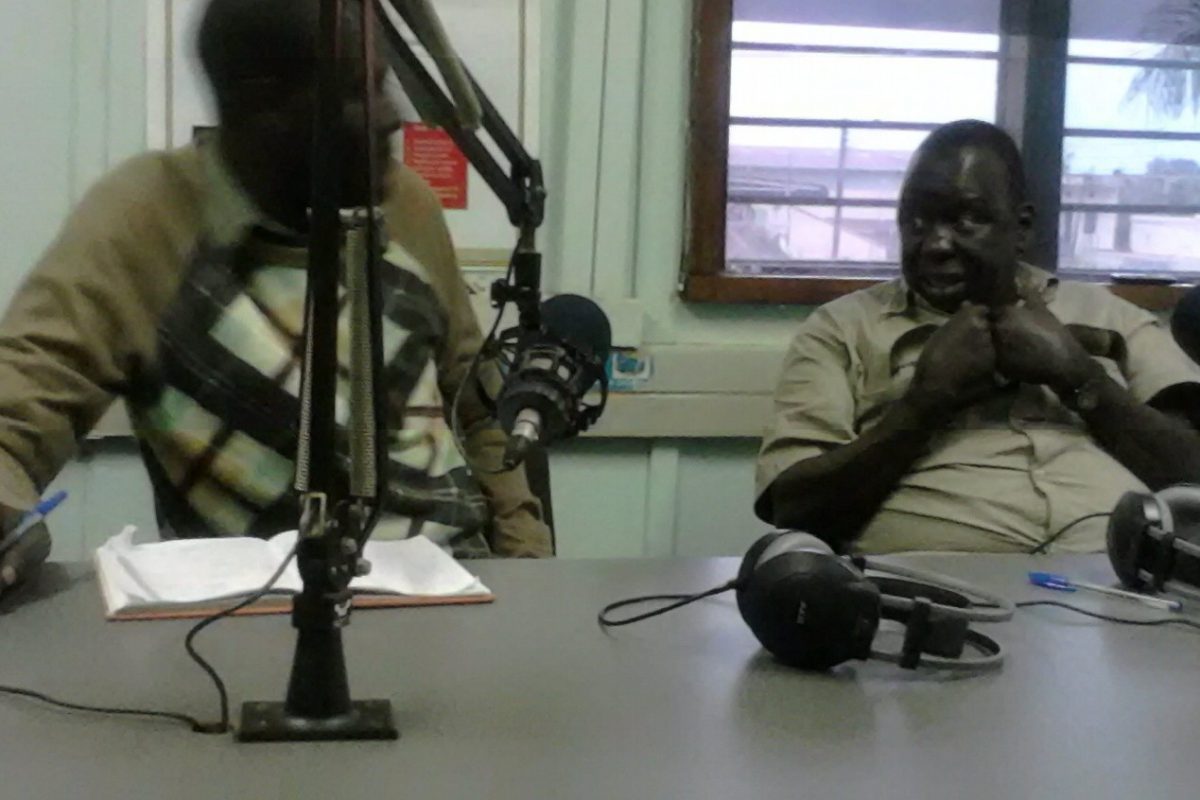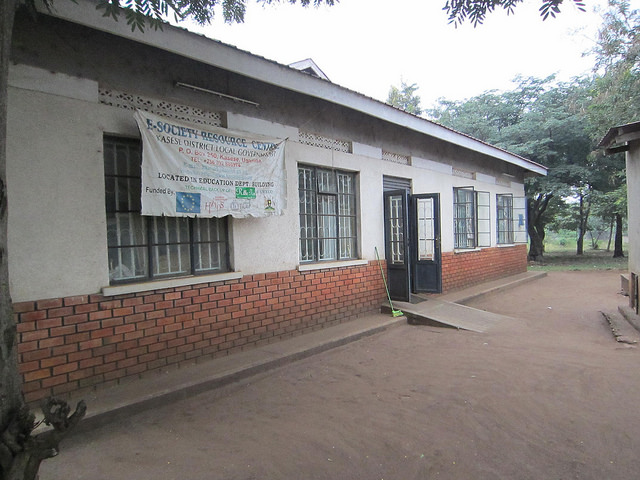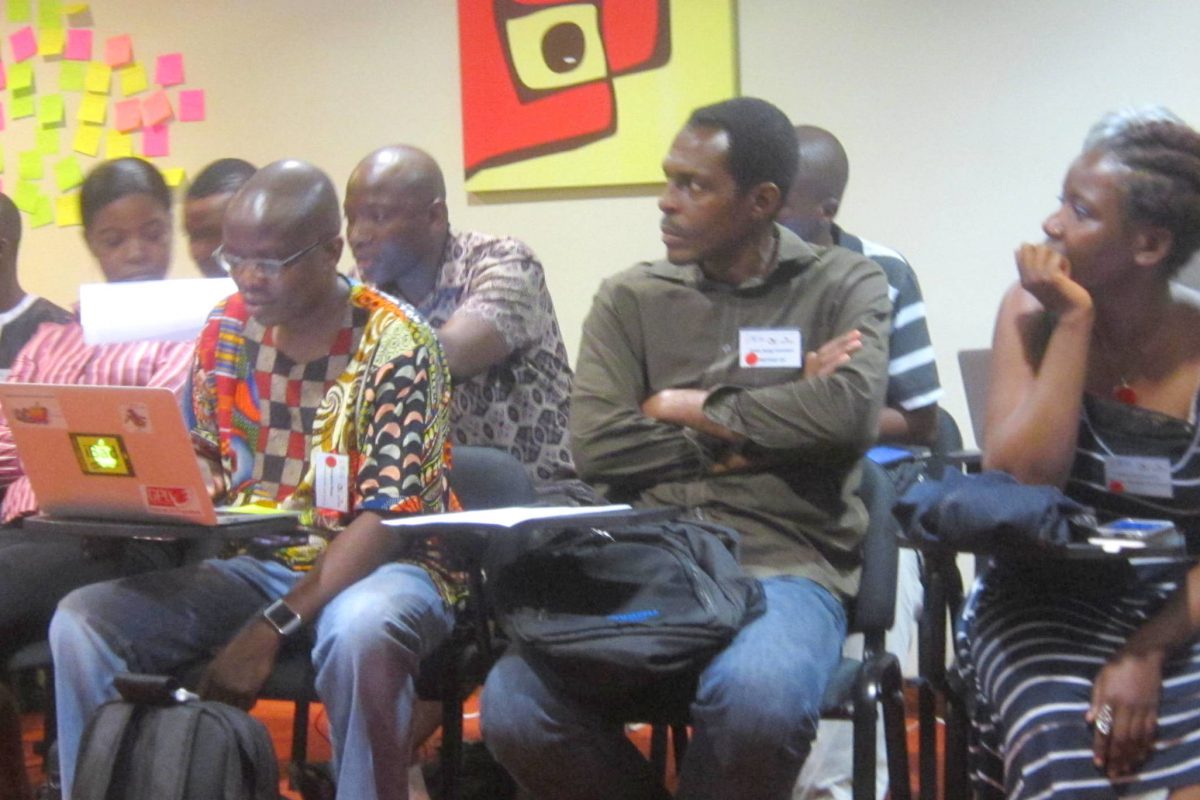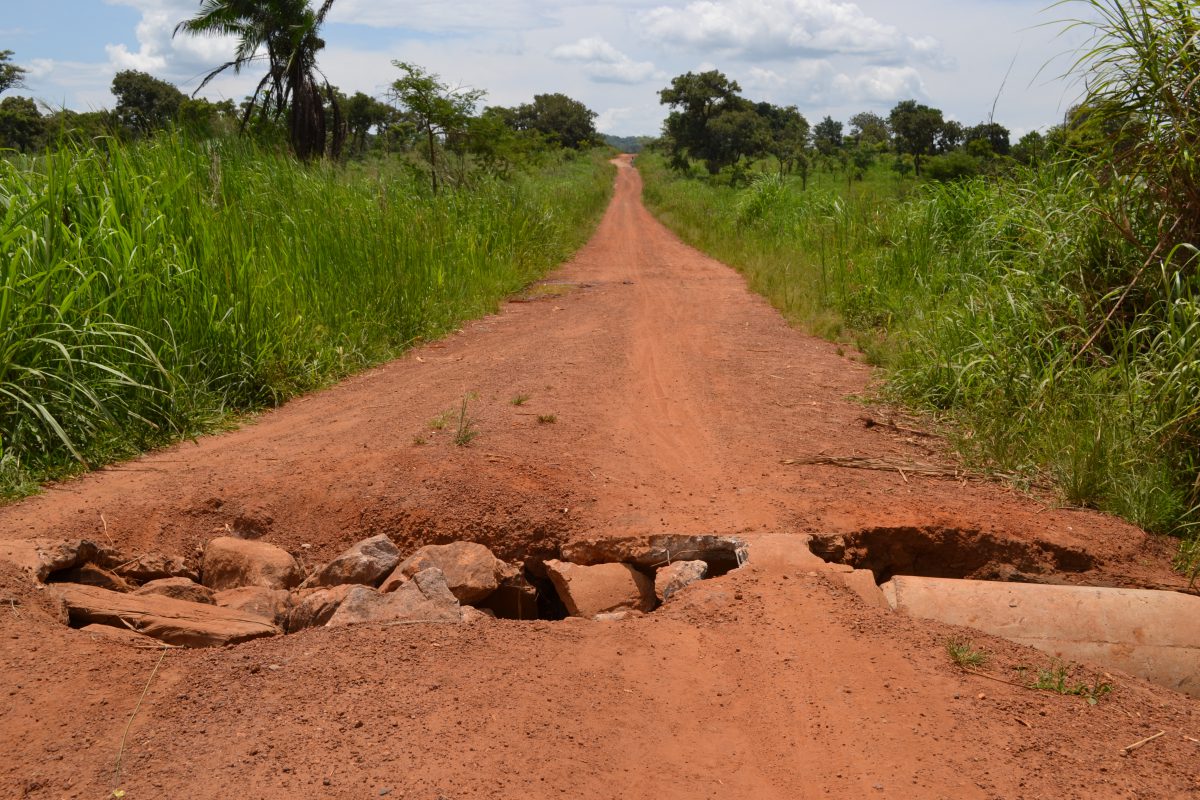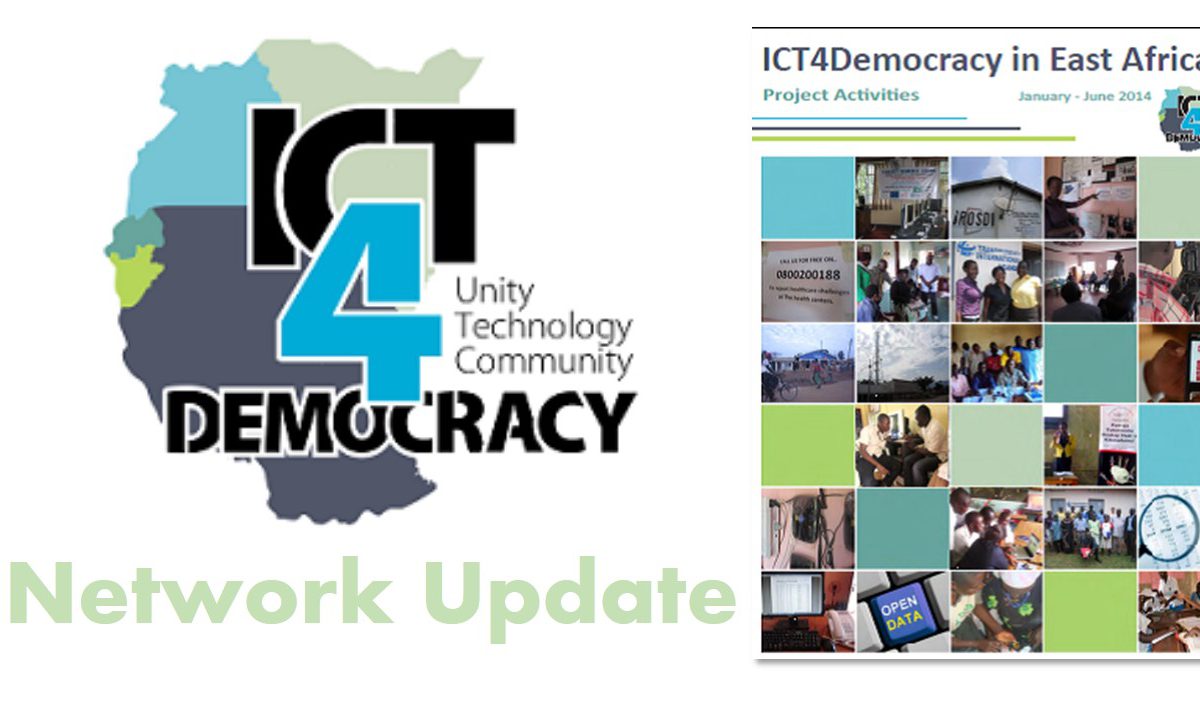By Gladys Oroma |
In 2014, the Collaboration on International Policy in East and Southern Africa (CIPESA) in partnership with the Northern Uganda Media Centre (NUMEC) launched a project to make Public Sector Information (PSI) more accessible and reusable by stakeholders such as citizens, civil society and the media in Northern Uganda.
Focusing on the districts of Gulu, Nwoya and Amuru, which bore the brunt of the Lord’s Resistance Army (LRA) insurgency, the project sought to document the status of service delivery in the education, health and infrastructure sectors through the use of Information and Communication Technology (ICT).
In particular, the project set out to document service delivery failures as a result of donor aid cuts to the Peace, Recovery and Development Plan (PRDP), and to generate debate by citizens through community debates, radio talk shows and ICT-based engagements on improving service delivery needs of post-conflict communities.
Initiated by the Uganda government in 2009, the PRDP initiative aims to revitalise the economy and livelihoods of communities in the post-conflict region through efforts like construction of classroom blocks, rehabilitation of roads, constructions of bridges, supply of solar panels, and rehabilitation of health centres. However, the programme has been discredited following allegations of corruption, resulting in a general distrust of its activities by community members familiar with it.
Other activities by CIPESA and NUMEC included building ICT skills and knowledge for citizens and journalists to access and gainfully use open data and PSI to contribute to better service delivery; increasing interactions between citizens and leaders; and promoting greater access to PSI for citizens in Northern Uganda.
Community debates were conducted in the districts of Gulu and Nwoya, enabling local residents to engage directly with local leaders, PRDP officials and the media. During a community debate in October 2014, residents of Acet in Odek sub-county in Gulu reported that they were not informed about the PRDP activities in their locality.
David Latigo Odongo, Local Council chairman of the Acet village, said the majority of residents in the area were not familiar with PRDP. “Even the local leaders were not educated about PRDP activities so when officials from Kampala come and ask to be shown PRDP activities in the area, the local leaders get confused,” he said.
He added that it is such lack of sensitisation that makes the people not to monitor projects implemented in the area. “They do not know who will monitor and take care of PRDP projects, that is why when projects like water boreholes are constructed in the area, people look at it as freebies from either the government or NGOs,” he said.
Educating the community before implementing the projects would have enabled local leaders and the community to monitor the project, he said.
Proceedings of the community debates were recorded and broadcasted on Mega FM, a local radio station with an estimated reach of 1.6 million listeners. Also two video recordings of the community debates were produced, in addition to two 15 minute documentary videos capturing the service delivery challenges under PRDP. They were shared during the project dissemination meeting held in November 2014. The videos show shoddy works, lack of coordination among project implementers, incomplete projects and inadequate funds are some of the challenges affecting the success of the PRDP.
Furthermore, talk shows were conducted on Mega FM. Through call-ins, listeners gave recommendations and opinions while others asked about the various stalled projects in their communities.
The first talk show held in July was attended by the Nwoya district Chairman, Patrick Oryema, the Chairman of Purongo Sub – Country, Francis Okumu, and the PRDP focal person for Nwoya Geoffrey Akena and members of the NUMEC team. The program focused on seeking further explanations on the failures on the PRDP from the officials.
The district officials pointed to the fact that some of the cases are currently before the Inspector General of Government (IGG) and that the district was trying to come up with a directive to allow them not to pay contractors until their work is completed.
The October talk show hosted the Sub-County Council Chairman of Odek, Adebe Wokorach, and the PRDP coordinator for Gulu district, Peter Enoch Ocen.
As a result of the community engagements, awareness of stalled projects under PRPD has increased and local people are now able to make follow ups on reported cases. For instance, the Gulu district Chairperson – Martin Mapenduzi was prompted to visit one of the documented schools, Awoonyim Primary School, to find out more about the stalled school project. However, at the time of this reporting, we were unable to establish the immediate outcome of the chairperson’s visit to the school.
The NUMEC-CIPESA partnership is in the context of the iParticipate Uganda initiative as part of the ICT4Democracy in East Africa network, supported by the Swedish International Development Cooperation Agency (Sida)
Citizens’ Use of ICTs in Social Accountability in Uganda’s Kasese District
By Ashnah Kalemera
The eSociety Resource Centre Kasese is a community centre hosted by the Kasese district local government in Western Uganda. It acts as a one stop point for local government officials and community members to access various Information Communication and Technology (ICT) tools and services. The centre provides ICT training programmes, hosts an information library, runs an online discussion group, maintains a news blog and social media accounts (Facebook, Twitter, Youtube). These are all aimed at enhancing citizens’ competence in monitoring government services, promoting accountability, civic participation and good governance in Kasese District.
Since 2011, the Collaboration on International ICT Policy for East and Southern Africa (CIPESA) has provided support to the centre, including computer equipment, internet subscription, centre maintenance and support to an ICT training officer. The support is in the context of CIPESA’s project which seeks to promote citizens’ use of ICTs for improved governance partly through grassroots public ICT access centres. The other partner centres in the project are the Northern Uganda Media Club (NUMEC) and the Busoga Rural Open Source and Development Initiative (BROSDI).
The eSociety centre hosts an average of 250 users per month, mainly local citizens, journalists and local government officials. CIPESA has offered media and district officials training in citizen journalism, geocoding methodology and data collection, information access and dissemination.
During the course of the CIPESA-eSociety partnership in 2014, we conducted a poll survey amongst a random selection of the centre users to assess their capacity and proficiency in demanding for better services, and participation in governance processes.
The results of the poll survey
On the frequency of internet access through mobile (phone and tablet), and desktop/laptop computer at home, work, internet café or the eSociety Centre 34% indicated daily use of the internet and 33% weekly.
When queried on the frequency of using ICTs to engage with leaders, 28% of respondents said they contacted their local leaders at least once a week, while 22% contacted them daily. Another 22% admitted to never contacting their local leaders.
Discussing a governance/service delivery issue was the reason most people (77%) contacted their local leaders. Second was following up on election manifestos (16%). Only 11% contacted their leaders to request for district budget information.
Email was the most commonly used means of contacting leaders at 72%. None of the respondents used text messages to contact their leaders despite widespread mobile phone ownership. Also, with an increasing number of people, including leaders, using social media, the platform was only used by 11% of respondents to contact leaders.
Table 1: ICT tools used to contact local leaders
| Tool | Yes | No |
| Sending an email | 72% | 28% |
| Using social media (Facebook, Twitter) | 11% | 89% |
| Telephone call | 50% | 50% |
| Text message | 0 | 100% |
| Other | Physically/ Word of mouth | |
For 89% of respondents, drugs shortages in local hospitals/health centres was the most pressing community need. This was followed by corruption and poor road infrastructure.
Table 2: Pressing service delivery issues in Kasese district
| Issue | Percentage of respondents |
| Drugs shortages in hospitals/health centres | 89% |
| Corrupt officials | 83% |
| Poor state of roads | 83% |
| Lack of clean water | 78% |
| Poor state of hospitals (facilities and standards) | 72% |
| Low staff levels (doctors and teachers) | 72% |
| Poor state of schools (facilities) | 67% |
Challenges to using ICTs
The most widely cited challenge to the use of ICT tools in accessing service delivery information in the local community was the high cost of accessing and using tools – cited by 78% of survey participants. Another common challenge was the lack of immediate feedback from the responsible officials (17%). Other challenges cited by respondents included unreliable electricity supply, poor network coverage (voice and data), and the long distances that citizens have to travel to access ICT centres/services.
The poll results indicate a good level of citizen engagement and awareness of service delivery issues in Kasese District. They further show that free ICT services provision for the centre’s users has enhanced service delivery monitoring and citizen participation in governance through ICTs in Kasese district. However, there remains need to continue identifying emerging ICT participative practices and needs at the centre, and building citizens’ capacity to effectively engage with their leaders for improved service delivery and governance. There is also the need for more leaders to more proactively engage with the ICT tools that citizens are increasingly utilising to reach them.
CIPESA’s iParticipate Uganda project is part of the ICT4Democracy in East Africa Network which is supported by the Swedish Program for ICT in Developing Regions (Spider) and the Swedish International Development Cooperation Agency (Sida).
Featured image from: http://rwecovoice.blogspot.com/2010_11_21_archive.html
Building Africa’s Capacity on Internet Governance
By Juliet N. Nanfuka
The growth of the internet has seen numerous efforts to ensure its equitable and sustainable use. A key outcome is the concept of Internet Governance (IG) based on the principle that no single entity owns or controls the internet but rather a range of players who reflect the diversity of users globally participates in its governance.
Over the years, IG has gained prominence through platforms such as the Internet Governance Forums which are hosted annually at national, regional and global level.
In 2013, the New Partnership for Africa’s Development (NEPAD) through its e-Africa Programme and the Association for Progressive Communication (APC) established the African School on Internet Governance. The school seeks to address IG issues from an African perspective while at the same time equipping more players from the continent to contribute and participate more meaningfully in the multi-stakeholder model of internet governance.
This year, CIPESA alongside participants and faculty members from over 20 countries collectively shared unique insights, experiences and understanding of internet governance at the school which took place between 21 and 25 November in Mauritius. The participants, from backgrounds including government, academia, civil society and the private sector, explored the complexities of internet governance with interactive talks and presentations. They mapped out the course that internet governance has taken to-date, the various institutions and policy processes, emerging human rights issues, and what different African countries are doing with regards to IG.
“As it often happens, Africans have not been at the forefront of the internet and its related issues, but gradually we are realising the potentials of the internet and the need to make our voices heard in its governance. With platforms such as AfriSIG building capacities of Africans from different stakeholder groups and the worth of information available on the internet, I see a brighter future for Africa in IG issues both at the continental and global levels.” Dora Mawutor of the Media Foundation for West Africa – Participant at the African School on Internet Governance
Central to the school was that participants garnered an understanding of the roles of the different internet stakeholders, the varied interests they have and how all this impacts upon outcomes at an IG multi-stakeholder meeting when trying to reach consensus on an issue.
While initiatives like the Africa IG school demonstrate movements to better equip more people from the African continent to drive IG locally and at international IG fora, in many countries local factors such as poor access, limited local content, low literacy and high costs remain areas that require more focus and locally driven solutions.
However, facets of IG in Africa especially where it applies to security, privacy, surveillance and intermediary liability still require further scrutiny. As seen in the State of Internet Freedoms in East Africa 2014 report, these issues are increasingly impacting upon human rights, freedom of the press, critical opposition and equality, among others, on the continent.
It is also essential that building Africa’s capacity in IG is tailored to also accommodate the unique needs and requirements of its internet users such as the availability of non-Latin script African languages online to contribute towards local content and cultural preservation.
It is, however, worth noting that despite existing challenges, many African governments and civil society actors are making progress in strengthening internet related frameworks that support the fundamentals of a free, open and secure internet. Helping shape the continent’s approach to protecting internet rights are initiatives such as the African Declaration on Internet Rights and Freedoms.
Similarly, the NetRightsNG initiative of Paradigm Initiative Nigeria is collaborating other players to champion a Digital Rights and Freedom Bill in Nigeria. In Uganda, the Ministry of Information and Communications Technology (ICT) in partnership with the Ministry of Justice and Constitutional Affairs (MoJCA) and National Information Technology Authority, Uganda (NITA-U) have developed a Draft Data Protection and Privacy Bill (2014) which is currently going through a process of review and commentary by citizens.
As more African countries map the way forward for the information age, there remains the need to ensure that valuable contributions are made to global Internet Governance as it is this very participation that will define the further adoption of internet governance principles in Africa.
Documenting the Impact of Aid Cuts on the Peace Recovery and Development Plan (PRDP)
By Lillian Nalwoga
Between March and July 2014, the Collaboration on International ICT Policy in East and Southern Africa (CIPESA) in partnership with the Northern Uganda Media Centre (NUMEC) launched a project to document service delivery failures as a result of donor aid cuts to the Peace Recovery and Development Plan (PRDP) in Northern Uganda.

Focusing on the districts of Gulu, Nwoya and Amuru, service delivery failures under the education, health and infrastructure sectors were documented through Information and Communication Technology (ICT). Shoddy works, lack of coordination among project implementers, incomplete projects and inadequate funds are some of the challenges affecting the success of the PRDP.
Launched in 2007 in consultation with development partners, the PRDP was set up to consolidate the state authority, rebuild and empower communities, revitalise the economy and promote peace building and reconciliation in post-conflict Northern Uganda. The plan covers 55 districts and 9 municipalities. Although implementation begun in 2009, the PRDP has been dogged by corruption scandals and inadequate information on progress. The second phase of the PRDP which began in July 2012 and is due to end in June 2015, has faced similar challenges culminating in the suspension of support from key donors as a result of misappropriation of funds by officials under the Office of the Prime Minister.
In the education sector, the CIPESA-NUMEC documentation found that one school – Awoonyim Primary School in Patiko Sub County Gulu district – is reported to have received funding for the construction of a teacher’s housing unit, two classroom blocks and supply of sixty desks in the PRDP of 2009/2010. However, during field visits it emerged that the classrooms were poorly constructed while the housing unit construction was abandoned midway by the contractor without any explanation to the school administration. In another case, a vehicle meant to assist the District Education Officer in monitoring school activities was never procured despite a budget allocation of 80 million Uganda Shillings (UGX) under the 2010/2011 financial year under the PRDP.
Under the health sector, Koro Abili Health Centre II and Purongo Health Centre II in Gulu and Nwoya districts were reported to have also been affected. Although an outpatient unit had successfully been built at the Koro Abili Health Centre II, it was under staffed and the center porter was acting as the administrator on behalf of the Assistant Nursing Officer. Meanwhile, the construction of a maternity ward worth UGX 80 million at Purongo Health Centre II had been abandoned midway by the contractor despite having been fully paid.

On the transport infrastructure front, the construction of the 70 kilometre (km) road linking Guru-Guru to Pabbo, a main entry in Lamogi Sub County in Amuru district, had been abandoned by the contractor. The road is impassible during the rainy season thus cutting off the communities from each other. The contractor had also not paid off locals who were employed during the construction. Atkinson Ojara, the Sub-County Chairman of Lamogi, attributed the road construction challenges to poor communication between sub-county officials.
The overall objective of the CIPESA and NUMEC partnership is to make Public Sector Information (PSI) more accessible and reusable by stakeholders such as citizens, civil society and the media in Northern Uganda. This involves repackaging information availing it online, in print and over radio,generating evidence on the impact of information access and use on transparency and accountability.
Other activities have included building ICT skills and knowledge for citizens and journalists to access and gainfully use open data and PSI to contribute to better service delivery; increasing interactions between citizens and leaders; and promoting greater access to PSI for citizens in Northern Uganda.
Watch the 15 minute documentary capturing the service delivery challenges under PRDP here. A picture story is also available here.
This work is supported by the Swedish Programme on ICTs in Developing Countries (SPIDER) and is part of the ICT4Democracy in East Africa project.
ICT4Democracy in East Africa Network Activities Update
By Juliet N. Nanfuka
The network of seven partners (profiles) unified under the ICT4Democracy in East Africa initiative have since 2011 jointly worked to enhance the capacity of citizens and governments in using ICTs to promote human rights, good governance and citizen participation.
Between January and June 2014, the partners each undertook activities that aimed to support the inclusivity of citizens in transparency,

accountability and service delivery monitoring through the use of Information and Communication Technologies (ICTs) in Kenya, Tanzania and Uganda. These activities are increasing citizens’ participation in decision-making processes and strengthening democracy in the region.
The partners have each created unique approaches to encouraging citizen participation through mobile short message services (SMS), FM radio, social media such as Facebook and Twitter, crowd-mapping platforms and a toll free call centre. Research has also been conducted by some partners on the knowledge and perceptions associated with ICT use and the flow of information between and among citizens and government.
As part of the projects, partners have pursued direct community engagement with grassroots based organisations, local governments, media, policy makers, voluntary social accountability committees (VSACs), academia, the tech community, and civil society organisations in the use and promotion of ICTs in governance.
In brief, some of the activities pursued by the partners include the below:
- In Western Uganda the Toro Development Network (ToroDev) has engaged with various stakeholders and also utilised radio and social media to inform and encourage participation in service delivery monitoring and accountability.
- The Kenya Human Rights Commission (KHRC) tapped into its existing community of Human Rights Networks (HURINETS) to advocate for open governance, and the right to information.
- iHub Research is conducting research into the flow of information between citizens and government through ICT tools in a bid to understand whether the interaction supports service delivery, access to information, and combating corruptions – and how these interactions can be improved upon.
- The Collaboration on International ICT Policy in East and Southern Africa (CIPESA) has combined research, capacity building and advocacy on the roles that citizens, media and public officials can play in the pursuit of good governance.
- The Ugandan Chapter of Transparency International is supporting communities in northern Uganda to report and act on shortcomings in the public health services delivery. This has been accomplished through provision of a toll free line, social media campaigns and working with Voluntary Accountability Committees (VACs).
- Women of Uganda Network (WOUGNET) is working with Community Based Organisations (CBOs) and Voluntary Social Accountability Committees (VSACs) to empower women in the use of ICTs that can enable them to play a part in service delivery monitoring in northern Uganda.
- In Tanzania, the Commission for Human Rights and Good Governance (CHRAGG) is educating citizens on human rights and empowering them to use their phones to report human rights violations.
For more details, please see the full activity report of ICT4Democracy in East Africa network between January and June 2014.
CIPESA is the ICT4Decmoracy in East Africa Regional Coordinator

